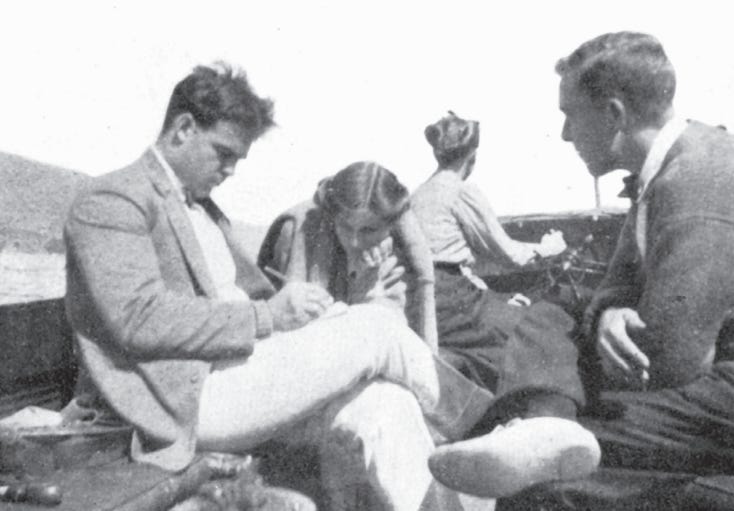111 years ago this week, William Borden completed a multi-month circuit of mobilizing college students for missionary work among the world’s unreached, especially the Muslims of China. Less than three weeks remained before he himself departed (via Egypt) for northwest China’s Gansu Province on the journey that would turn out to be his last.
“Those were fruitful months,” wrote F.P. Turner, general secretary of the Student Volunteer Movement. “William was used to lead students in many colleges and universities to give their lives to foreign missionary service. The last letter I received from him enclosed the ‘declaration card’ of a Student Volunteer who had signed it after his visit, and sent it on to him in Cairo. In years to come there will be missionaries in many fields who owe their decision, under God, to William’s unselfish service during his last months in this country.”
TO MARRY OR NOT TO MARRY, THAT IS THE QUESTION
One of Borden’s Yale classmates, who had attempted to draw him out on the subject of marriage, recalled the conversation he had with Bill around that time:
At the end of November, when Bill was here to give a talk in the seminary, he came to my room and lay down on the couch, having caught a feverish cold. We talked over many matters. In a joking way I asked him when he was going to marry. He replied seriously that he thought it was crude for a man who was going into one of the most difficult of missionary fields to ask any girl to go with him, because the woman always fared the worst, often succumbing when the man survived; that he had no intention of marrying – it would be wrong to the girl and would hinder his highest efficiency in the field he had in view. Bill’s thoroughgoing decision on this question, which is so hard for many to settle, is another indication of his complete surrender of himself to the great work to which he was called.
Borden strongly approved the rule of the China Inland Mission (founded by Hudson Taylor) with regard to outgoing missionaries, whether men or women, that they should remain unmarried for the first two years in China, so as to give undivided attention to the study of the language and have the best opportunity of becoming acclimated and getting into touch with the people.
His own problem extended, however, far beyond the two years. What about the period, long or short, when he would be practically homeless and exposed to significant hardship and danger?
In one of his much-read books, Borden had marked these poetic lines by Meyer on St. Paul:
Yes, without cheer of sister or of daughter.
Yes, without stay of father or of son,
Lone on the land and homeless on the water
Pass I in patience till the work be done.
After his last meeting in December, concluding his three months’ work in the colleges, he was dining with Dr. and Mrs. Angell in Rochester, and the latter wrote of being “deeply impressed with the fire and ardor of his faith.”
As he sat at the table with us, talking of all he hoped to do for and in China, his face became glorified, his eyes shone with a light that only divine things can awaken. At the same time there was a poise, a dignity, and a balance that showed that his was not the mind of a fanatic. He was one who had counted the cost but never flinched for a moment.
Indeed! No reserve, no retreat, no regrets had any place in Borden’s consecration to God.






